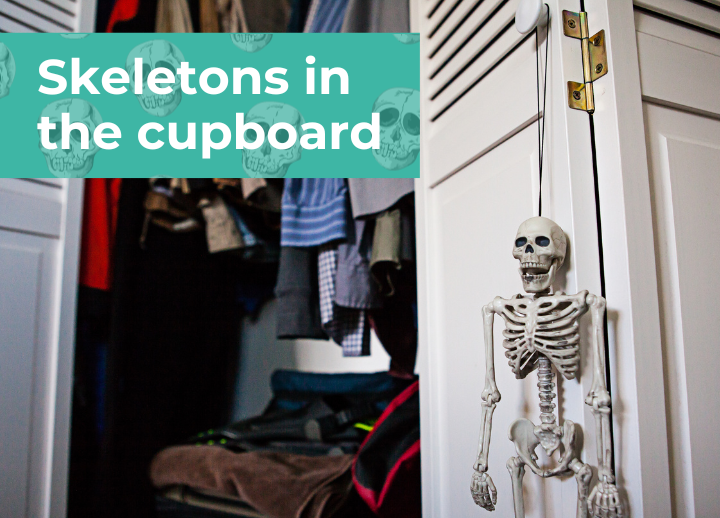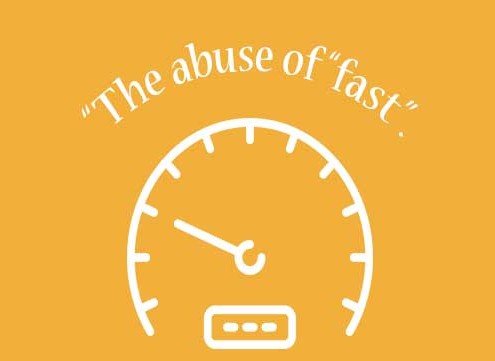Skeletons in the cupboard (English) / closet (American)
Skeletons in the cupboard” or “trapos sucios” in Spanish, refers to concealed and/or buried secrets that may bring embarrassment or damage to a reputation if revealed. These hidden truths evoke a sense of guilt or shame associated with this undisclosed information.
The phrase dates back to the 19th Century where doctors would use bodies of executed criminals to carry out medical research and would hide them in cupboards where the public could not see them.
Here are some examples:
- Michael always appeared composed (tranquilo) and confident, but he had a skeleton in his close. He had an addiction to gambling that he kept hidden from his friends and family.
- It is always possible to find a skeleton in the cupboard when you dig (trapos sucios cuando “investigamos a fondo” el historial familiar) into family history. Our great, great, grandfather had been in prison for bank robbery!
- Richard had several skeletons in his cupboard, including undisclosed financial ties (“lazos financieros secretos”) and a history of unethical behaviour, which could ruin his chances in the upcoming (arruinar sus probabilidades de ganar en la “próxima”) election.
- Does Mr. Sanchez have skeletons in his cupboard? Will Mr. Feejoo, the new Spanish Prime Minister, find them?
El autor es Aimee, directora y una especialista en educación hablante nativa.


 El autor es Aimee, directora y una especialista en educación hablante nativa.
El autor es Aimee, directora y una especialista en educación hablante nativa.








